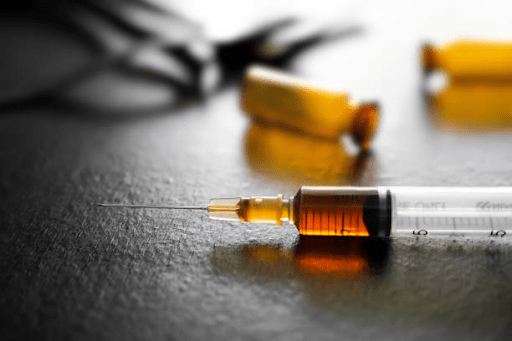Gastroscopy, also known as an upper endoscopy, is a medical procedure that allows doctors to examine the lining of the upper gastrointestinal tract. It involves the use of a flexible tube with a light and camera attached to it, which is inserted through the mouth and into the esophagus, stomach, and duodenum. Gastroscopy is a valuable diagnostic tool used to detect conditions such as ulcers, inflammation, tumors, and other abnormalities. While the thought of undergoing a gastroscopy might be daunting.
And it’s natural to feel a mix of curiosity, apprehension, and even anxiety about the upcoming procedure. However, by familiarizing yourself with the process and implementing a few simple strategies, you can significantly reduce stress and make the experience as comfortable as possible. In this post, we will provide you with some useful tips to ensure a smooth and worry-free gastroscopy experience, from understanding the procedure to post-procedure care.
Tips for a Stress-Free Gastroscopy Procedure
Undergoing a gastroscopy procedure can be a source of stress for many people. However, there are several tips you can follow to help make the experience as stress-free as possible:
1. Understanding the Procedure
Understanding the gastroscopy procedure can help reduce anxiety and ensure a more comfortable journey. It entails inserting a small, flexible tube with a light and camera (endoscope) into your mouth and digestive tract. The camera lets the doctor look for any abnormalities or evidence of disease in the lining of your esophagus, stomach, and duodenum. By getting familiar with the gastroscopy process, you will be able to approach it with ease and confidence, knowing that it is a safe and effective method of diagnosing and treating gastrointestinal disorders.
2. Ask Questions
It is essential to have open communication with your doctor before the gastroscopy surgery. Do not be afraid to ask any questions or communicate any worries you may have. You will be able to comprehend the procedure, the hazards, and the examination’s goal much better if you do this. You can also enquire about the sedative that will be given to you before the procedure to help you relax, any possible side effects, and whether there are any special dietary or pharmaceutical restrictions to observe before the examination. Knowing what to expect in advance not only reduces anxiety but also gives you greater control over your personal healthcare experience.
3. Discuss Medications
It is critical to provide your doctor with a detailed list of all medications you currently take, including over-the-counter medicines, vitamins, and herbal therapies. This information is critical since certain medications may interfere with the surgery or raise the risk of problems. Your doctor will carefully assess your medications and determine whether any of them should be temporarily discontinued prior to the surgery. To reduce the risk of bleeding during the gastroscopy, some medicines, such as blood thinners or anti-inflammatory drugs, may need to be stopped.
4. Follow Fasting Instructions
At the time of Gastroscopy, doctors will ask you not to eat or drink anything for several hours before the surgery. Doctors do this to verify that your stomach is empty, allowing you to see more clearly during the inspection. By not eating or drinking for the specified time, you contribute to creating ideal conditions for the gastroscopy, allowing your doctor to receive precise results. Fasting is understandably difficult, especially if doctors schedule the surgery for later in the day. Keep in mind, however, that this temporary restriction is in place to improve the effectiveness of the exam and safeguard your safety. If you have any issues or questions concerning the fasting requirements, please check with your doctor.
5. Understand Sedation Options
When you have a gastroscopy, your doctor can give you a sedative to help you relax and minimize any potential discomfort. It is critical to have a thorough discussion with your doctor about the many sedative alternatives accessible to you. This discussion will enable you to make an informed decision based on your level of comfort and medical history. You can take an active part in making decisions about your comfort during the gastroscopy surgery by having an open and thorough talk with your doctor about the sedative alternatives, risks, and potential side effects. This conversation will help to personalize and enhance your visit, ensuring that your needs and concerns need the best of your doctor’s abilities.
6. Follow Post-Procedure Instructions
You can suffer some minor side effects following the gastroscopy, such as bloating or a sore throat. Your doctor will give you detailed instructions on how to deal with any pain and what to expect in the hours after the treatment. You need to follow these suggestions in order to ensure a quick recovery. You can speed up your recovery and reduce any pain brought on by the gastroscopy by adhering to your doctor’s precise recommendations and being aware of what your body requires during the recovery phase. Remember that everyone recovers slightly differently, so it’s important to talk to your healthcare practitioner if you have any worries or queries.
Wrapping Up
Undergoing a gastroscopy can be a daunting experience, but armed with the right knowledge and preparation, you can approach the procedure with confidence and minimize stress. By following the tips of the above-mentioned guide, you can ensure a more comfortable and stress-free experience. It’s best to follow your healthcare provider’s advice and recommendations to ensure a smooth and effective procedure. For professional guidance one can consult a gastrologist in Pretoria to get necessary care and support. With expert guidance, you can get the procedure with confidence and minimize stress.






